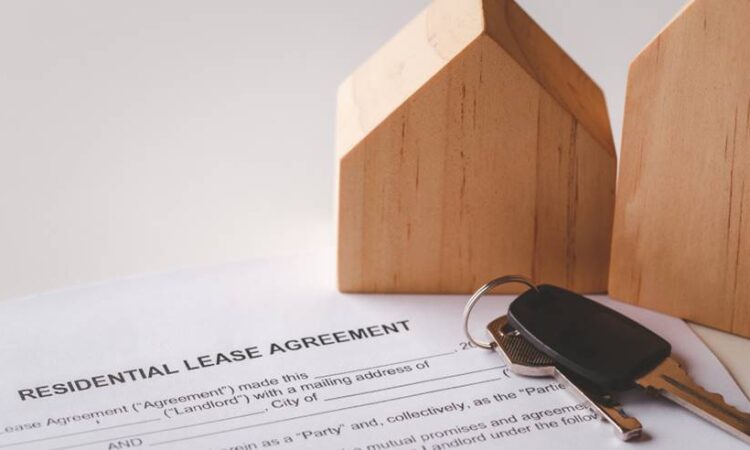
In major cities, rental markets can vary widely depending on the type of property, location, and local regulations. For example, the rent, rules, and restrictions for a studio apartment differ greatly from those for a multi-bedroom unit. To ensure both landlords and tenants are fully aligned on the terms of tenancy, a rental agreement is essential. This document lays out the conditions for renting, clarifies responsibilities, and provides legal protection for both parties which is why it is on the list of essential property management forms.
This guide explains what a rental agreement is, what it should include, and why it is crucial for tenants and landlords alike.
What Is a Rental Agreement?
A rental agreement is a legally binding document signed between a landlord and a tenant. It defines the terms and conditions of renting a property, including the rights and responsibilities of both parties. This agreement serves as the foundation of a rental relationship, helping to ensure clarity, fairness, and legal protection.
Typical details in a rental agreement include the rent amount, payment due date, security deposit requirements, lease duration, maintenance obligations, and property use rules. Rental agreements may be short-term, such as month-to-month, or long-term, such as six months or a year.
Unlike a fixed-term lease, a month-to-month agreement allows greater flexibility, letting either party end the tenancy with proper notice. Rental agreements may also specify late payment penalties, pet policies, and early termination conditions—all of which help avoid misunderstandings and disputes.
What Does a Rental Agreement Include?
A comprehensive rental agreement should outline every important term and condition of the rental arrangement. Below are the key elements commonly found in a rental agreement:
- Names of Parties Involved: Clearly lists the full names of the landlord and tenant(s), identifying who is responsible for the property and rent.
- Property Description: Details the address, unit number, and any additional features such as parking spaces, storage areas, or shared facilities.
- Rental Term: Defines the start and end dates of the tenancy, stating whether it’s a fixed-term or month-to-month agreement.
- Rent Amount and Payment Terms: Specifies the rent amount, due date, acceptable payment methods, and late payment penalties.
- Security Deposit: Explains the deposit amount, how it will be held, conditions for its return, and permissible deductions for damages or unpaid rent.
- Maintenance and Repairs: Clarifies the responsibilities of both parties regarding maintenance and repairs. It may outline the tenant’s duties for general upkeep and the landlord’s responsibility for major repairs.
- Utilities and Services: States which utilities are included in the rent and which are the tenant’s responsibility to pay separately.
- Rules and Regulations: Lists property rules such as pet policies, noise limits, smoking restrictions, and guest or subletting rules.
- Termination or Renewal: Defines the process for ending or renewing the agreement, including the required notice period for either party.
- Dispute Resolution: Outlines how disputes will be handled, such as through mediation or arbitration.
- Signatures: The agreement becomes legally binding once signed by both the landlord and tenant, including the date of signing.
A well-drafted agreement not only provides clarity but also ensures compliance with local laws and regulations, reducing the likelihood of misunderstandings and conflicts.
Why a Rental Agreement Is Important for Tenants

A rental agreement protects tenants by clearly defining their rights, responsibilities, and the terms of their tenancy. It ensures fair treatment, transparency, and legal security. Below are key reasons why tenants benefit from having a written rental agreement:
1. Legal Protection
A written agreement outlines the landlord’s obligations and safeguards the tenant’s rights related to privacy, maintenance, and repairs. It provides a legal reference if disputes arise.
2. Clear Payment Terms
By defining the rent amount, due dates, and late fees, tenants know exactly what to expect, avoiding financial misunderstandings and unexpected penalties.
3. Protection Against Unlawful Eviction
The agreement specifies the conditions under which a tenant can be evicted, preventing arbitrary or illegal eviction attempts by the landlord.
4. Dispute Resolution
If conflicts occur—such as disagreements over rent or property damage—the agreement serves as an objective record that helps resolve issues fairly.
5. Understanding Property Rules
Rental agreements outline rules for property use, including guest limits, pet policies, and noise restrictions, helping tenants maintain compliance and avoid penalties.
Why a Rental Agreement Is Important for Landlords
For landlords, a rental agreement provides a structured and legally enforceable framework that protects their property and defines tenant obligations. It helps minimize risks and promotes a smooth rental experience. Key benefits for landlords include:
1. Legal Protection
A written rental agreement provides a clear record of terms, including rent payments, property care, and tenant behavior. This documentation is vital if disputes require legal intervention.
2. Rent Payment Security
The agreement ensures clarity on rent amounts, due dates, and penalties for late payments. This consistency helps landlords manage income and avoid payment issues.
3. Property Damage Prevention
By clearly outlining maintenance duties and care expectations, the agreement reduces the likelihood of property damage and ensures tenants uphold their responsibilities.
4. Clear Eviction Procedures
A rental agreement defines the legal grounds and process for eviction if tenants violate the terms, helping landlords act within the law and avoid costly legal complications.
A strong rental agreement also reinforces professionalism, showing tenants that the landlord manages the property responsibly and fairly. This builds trust and encourages tenants to comply with the rules.
Secure Your Rental Agreement Today
A well-written rental agreement is vital for both landlords and tenants. It promotes transparency, protects rights, and establishes clear expectations that prevent misunderstandings and disputes. Whether for short-term or long-term rentals, this document is the cornerstone of a safe, fair, and successful tenancy.
For those managing multiple properties or new to renting, working with property professionals can help ensure the agreement complies with local laws, protects both parties, and supports a smooth rental experience.




